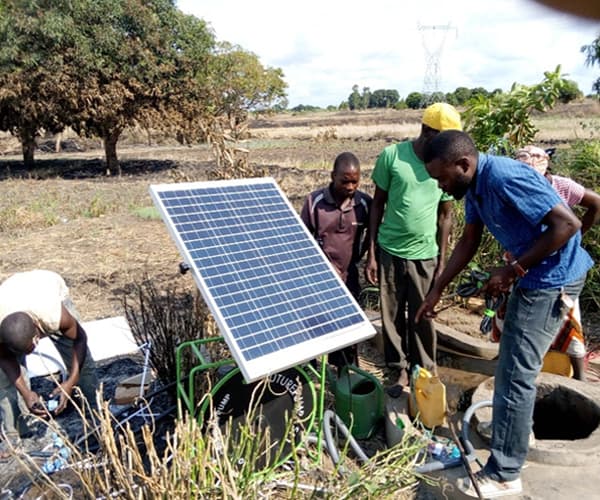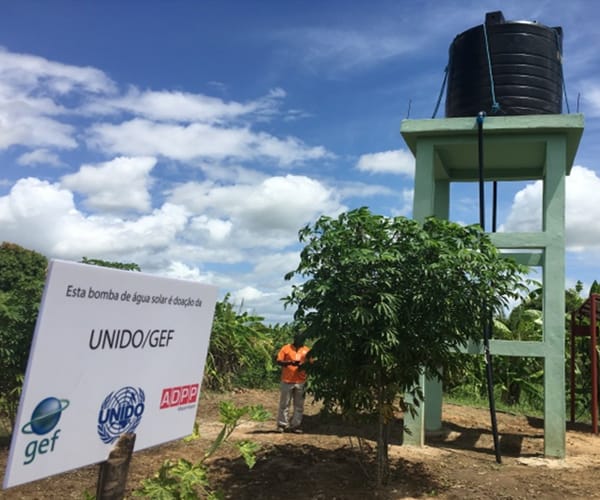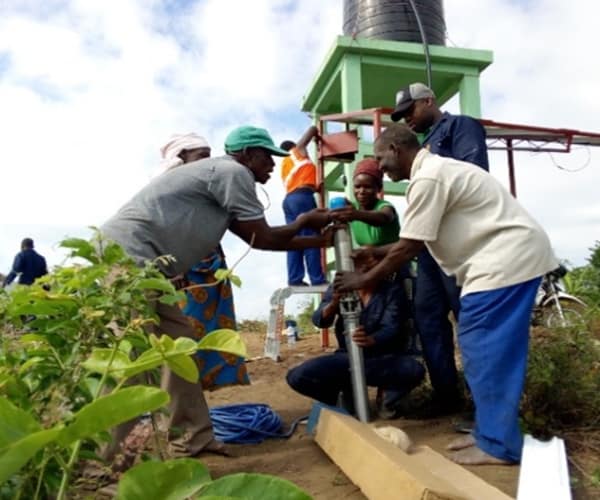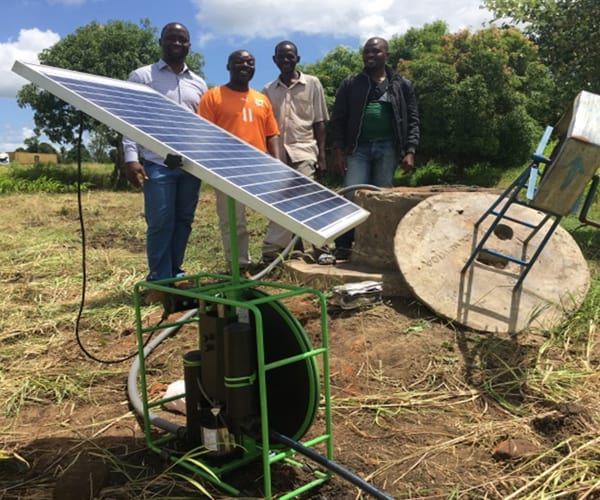Towards Sustainable Energy
for all in Mozambique
Promoting market-based dissemination of integrated renewable energy systems
for productive activities in rural areas

1Establishment of a conducive policy
and regulatory environment
The objective is to contribute to the adoption of improved policies and a regulatory framework that promotes and arouses the interest of the private sector to invest in integrated renewable energy systems. This will be achieved by identifying gaps and suggesting changes to the framework, developing guidelines for private investors and adopting standards for renewable energy technologies.
Expected Result: Regulatory environment for integrated ER systems in rural areas established.

2Capacity building and
knowledge management
Key market players, universities and vocational training institutions should support the development of a renewable energy market for communities. To this end, all facilitators and participants in this market must be trained to regulate and plan the sector; investors must be able to translate their ideas into bankable projects and financial institutions must be able to make attractive financial products available to the private sector. Capacity will be built through tailored and specific training programs taking into account gender equality issues through a "joint learning process", where financial institutions can interact with small and medium industries, farmers and project developers to identify business opportunities.
Expected Result: Capacity of key actors strengthened and information available to all market players.

3Technology demonstration
and scaling up
It is vital to demonstrate the technical and commercial viability of renewable energy projects for productive activities in order to identify experiences that can be replicated and scaled up, thus driving the emergence and development of a market. The project aims to implement several demonstration projects that will serve as models of good practices, using the following technologies: Solar systems for food conservation (solar dryers, refrigeration and cold rooms, ventilation systems); Pumping water through solar energy for irrigation; Solar systems for the agri-food processing industry (mills, crushers); Biogas for agri-food processing industries (replacing boilers or diesel generators with anaerobic digesters); Transformation of organic waste into energy; In order to support scaling up initiatives of viable projects, the project intends to develop an attractive financial mechanism to allow greater access to capital by investors (private sector and project developers).
Expected result: Integrated renewable energy systems demonstrated and scaled up.

4Monitoring and
Evaluation (M&E)
An appropriate M&E framework that follows the GEF and UNIDO procedures will be designed and implemented in order to measure the progress and impacts of the project. The framework allows for the decision making necessary to mitigate the potential risks of the project. Part of this activity consists of carrying out interim and terminal evaluations accompanied by periodic reports.
Expected Result: Project progress towards objectives continuously monitored and evaluated.

